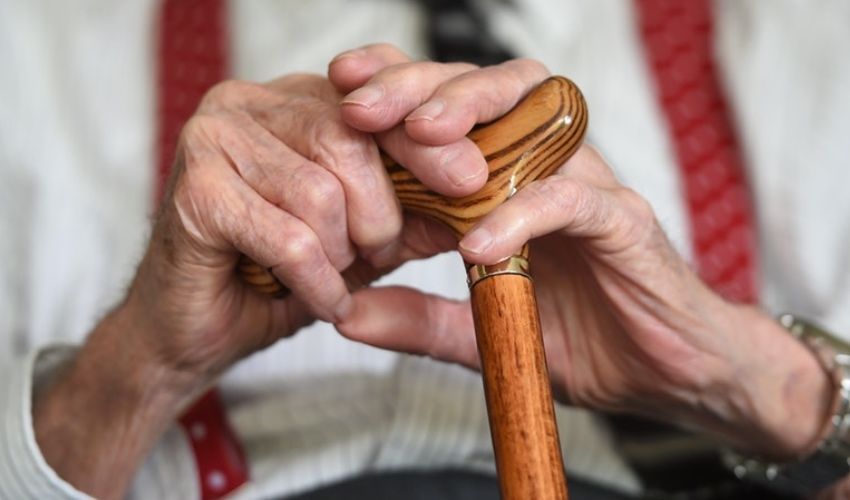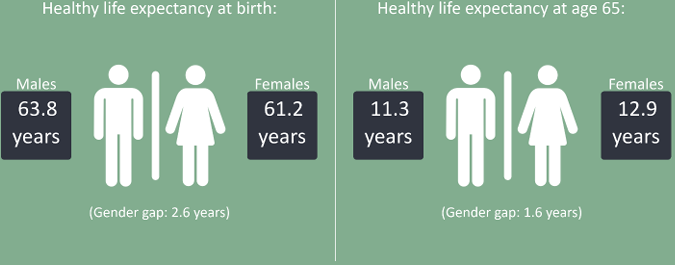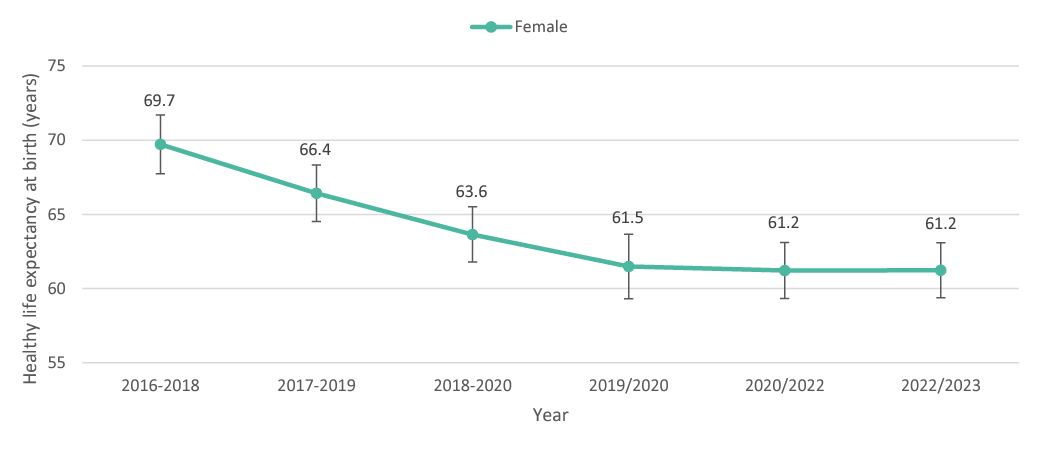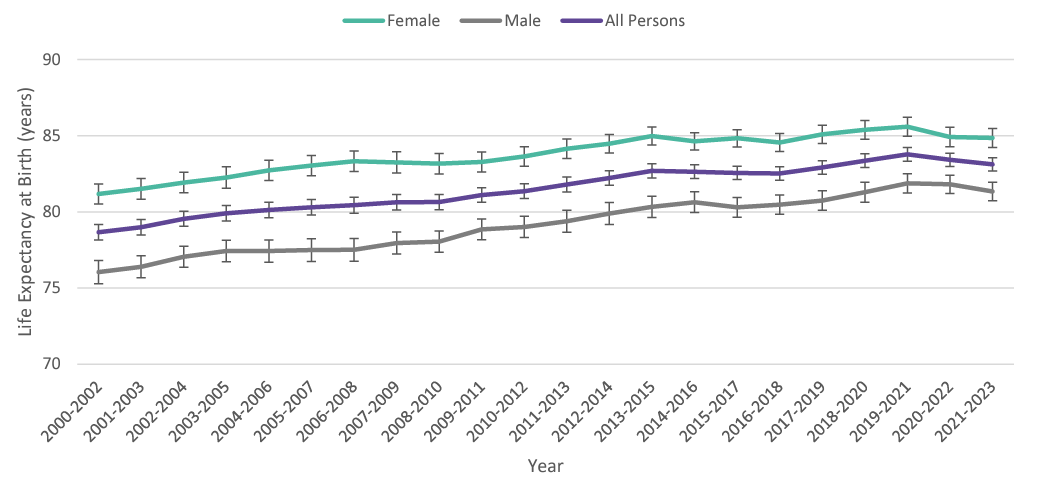


Female islanders are enjoying fewer years in 'good health' than women in England, new figures have revealed.
The Healthy Life Expectancy Report 2022/2023 – published this week in conjunction with the Life Expectancy Report 2021 to 2023 for the first time – shows that local women can also expect to live in ‘very good’ or ‘good’ health for around two-and-a-half years less than local men.
From birth, men lead on average healthy lives for 63.8 years, where the same figure for women is 61.2 years – over eight years lower than it was in the mid 2010s.
This figure also puts them below women in England, who live healthy lives for 62.7 years on average, and Guernsey, where the figure is 63.2 years.

Pictured: The comparison of healthy life expectancy between men and women in Jersey.
Healthy life expectancy is an extension of life expectancy which combines mortality data with general health status data to produce estimates of the span of life that a person can expect to live in 'very good' or 'good' health.
This is calculated using a self-reported health status question included in the Jersey Opinions and Lifestyle Survey conducted each year with a sample of the population.

Pictured: How the healthy life expectancy for women has changed since 2016.
However, when looking at gender difference for overall life expectancy, women can expect to live longer than men.
Life expectancy for females was 84.9 years – around three-and-a-half years higher than that for males 81.3 years.
The average figure of 83.1 is lower than the 83.4 reported last year – but Public Health Director Professor Peter Bradley has previously cautioned against drawing conclusions from slight drops.
In considering three-year periods, male life expectancy has increased by 1.9 years since the 2011 to 2013 period, while for females there has been "no statistically significant increase or decrease".
The increase for males over time is greater than that of females.

Pictured: The change in life expectancy for males and females since 2000.
When it comes to life expectancy, Jersey and Guernsey have once again topped the table among nations and devolved areas in the British Isles, according to the report.
Islanders born today in Jersey can expect to live on average for 83.1 years, which is marginally lower than Guernsey's figure of 83.5 – but puts both islands ahead of the Isle of Man, England, Northern Ireland, Wales and Scotland.
Jersey's average life expectancy was around two years higher than that in England and one year higher than the South West, one of England's best-performing regions.
When compared with Guernsey, women in Jersey were slightly worse off, with a life expectancy of 84.9 to Sarnians' 85.6 years. But men were in the same position across the Channel Islands, with the figure of 81.3 years.
Once people reach age 65 in Jersey, they can expect to live on average another 21.2 years.
Life-expectancy figures are calculated by incorporating data on age-specific death rates for the population in question, which requires data on the number of people in the population, and the number of deaths at each age for that population.
Data allows estimates to be made for all age groups within the population with Jersey's figures aggregated over a three-year period.
Comments
Comments on this story express the views of the commentator only, not Bailiwick Publishing. We are unable to guarantee the accuracy of any of those comments.